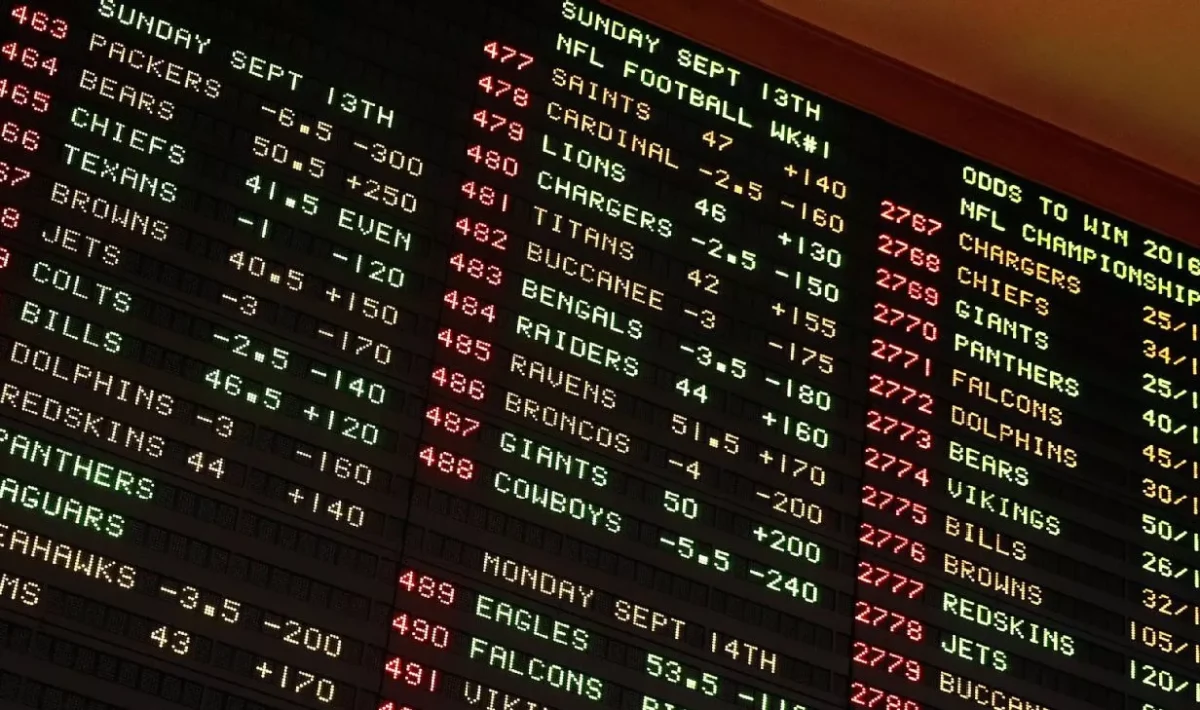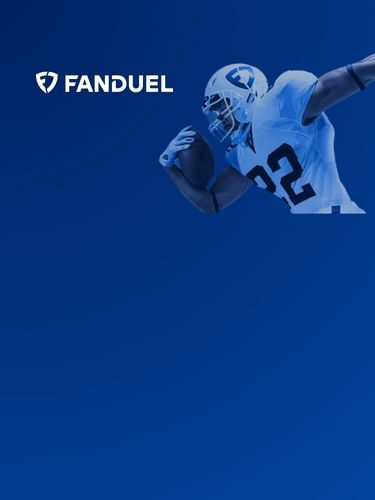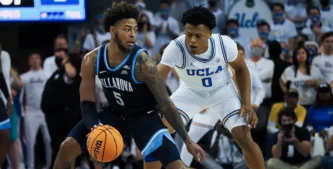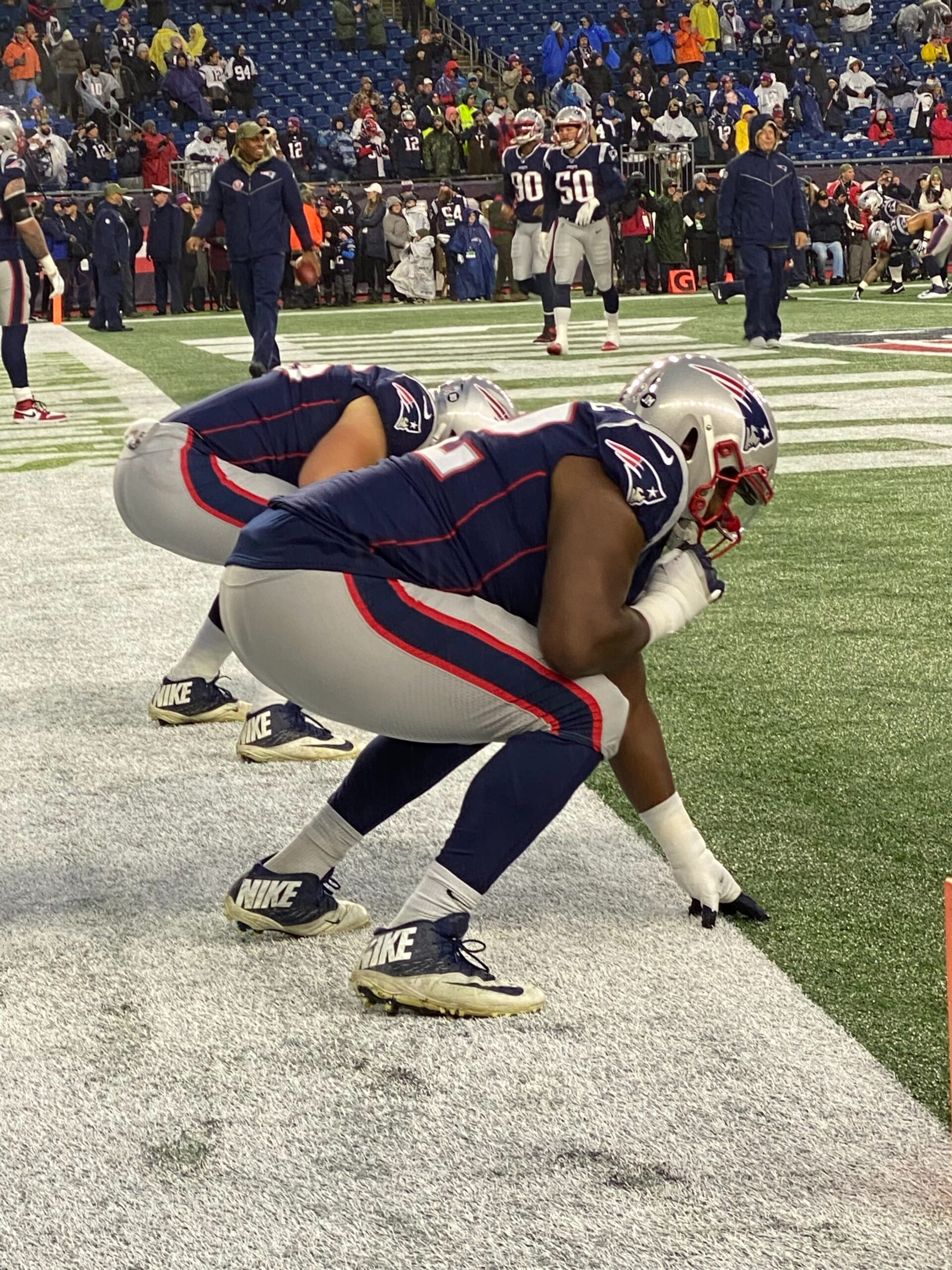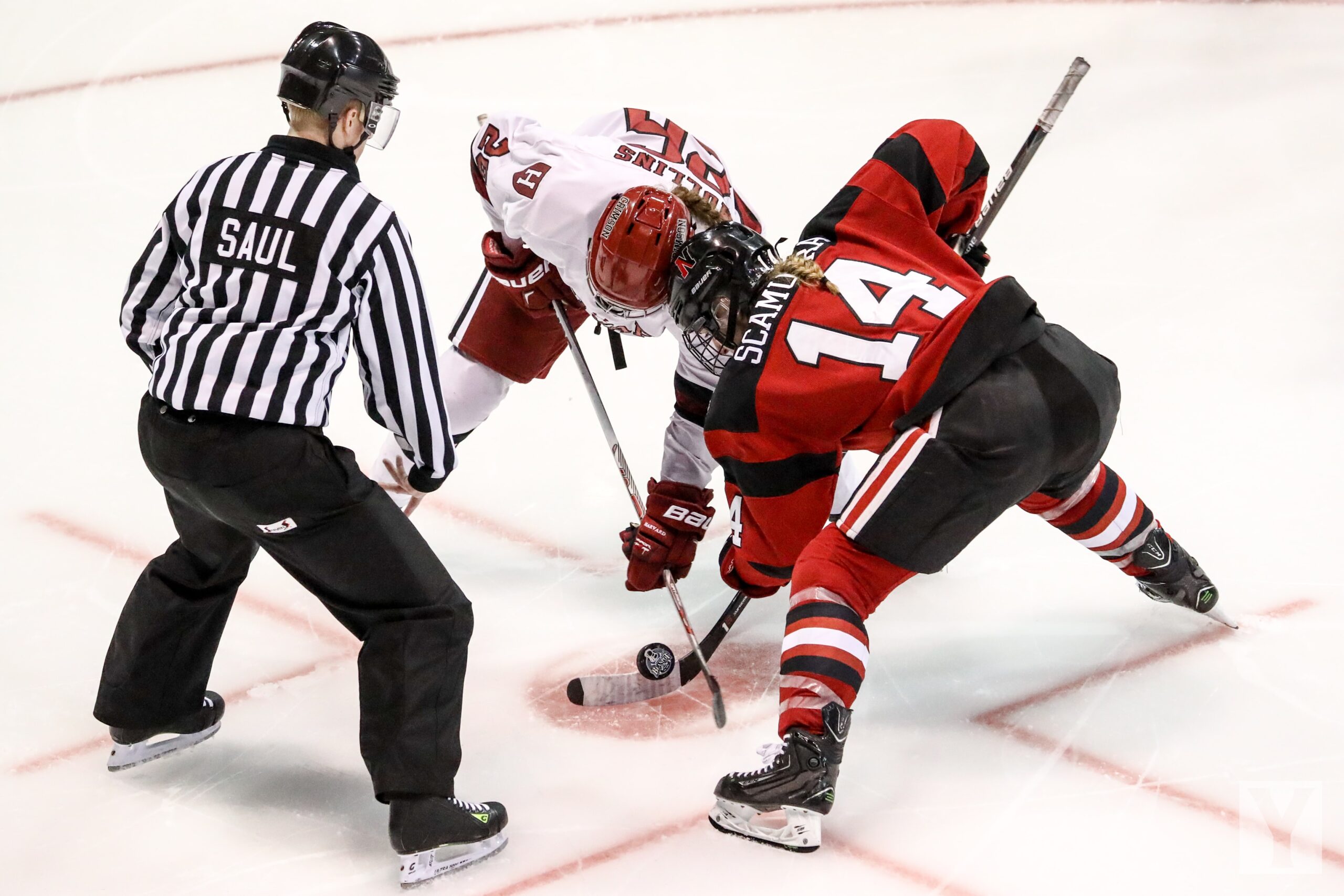What does money line mean in NFL? Moneyline betting is one of the simplest and most popular wager types in sports betting. Whether you’re a beginner or a seasoned bettor, understanding what moneyline means and how to use it effectively in sports like NFL football and NBA basketball is essential.
Let’s break down moneyline betting, explain the odds, and provide actionable strategies to help you make more informed decisions.
What Does Moneyline Mean In Football?
The moneyline simply refers to which team will win the game. There are other wagers on the game – point spread, totals, player props on Super Bowl jerseys and halftime show, etc. – but this is the simplest and most popular bet type out there.
When you sign up, most sportsbooks will dictate that any bonus bets be used on a moneyline. Even beginners can get a feel for how the moneyline works, how much to bet, what kind of payout, and all the intricacies of it in sports betting.
How Moneyline Works In NFL
When you look at a moneyline bet, you see two symbols (in American betting): positive and negative numbers. These tell us which one is the favorite and which is the underdog while also giving us information on the payout.
Let’s look at an example. In the Super Bowl, the odds might look like this: San Francisco 49ers (-125) vs. Kansas City Chiefs (+100). Right off the bat, we know the Chiefs are the underdog and the 49ers the favorite. We also know that betting on the Chiefs to win would result in a bigger payout than wagering on the 49ers to win.
Types of Moneyline Bets
There are three main types of moneyline bets: standard, Draw No Bet (DNB), and a three-way moneyline. Let’s look at each:
Standard. You are betting on one team to win outright; overtime sessions and extra innings are generally included in this type of bet.
Draw No Bet (DNB). For sports like soccer where ties are possible, this bet type excludes the possibility. You won’t be able to choose a draw as an option, instead having to pick one of the two teams to win.
Three-Way Moneyline. Again using soccer as an example, a three-way involves betting on NFL on two of the three possible outcomes (home team victory, away team victory, and draw). For example, you could bet on the home team to win or draw. With this bet type, two of the three possible outcomes are covered in one wager.
Calculating Moneyline Payouts
Calculating payouts can be a bit tough. Most of the time, think about a wager as to how much it would take to win $100. Negative numbers require a larger bet to get $100 while a positive number would require less to reach that number.
Let’s use the aforementioned example of the 49ers (-125) vs. the Chiefs (+100). In order to win $100 on the 49ers, you would need to bet $125. Betting to win $100 on the Chiefs, meanwhile, would require a bet of just $100. The more the odds swing one way or another, the greater the difference will be.
Pros and Cons of Moneyline Betting
Like any other aspect of sports betting, there are good and bad things when it comes to the moneyline. Sports betting is wonderful because there are so many options to choose from that you don’t have to settle for just one bet type. Here is what to like (and not like so much) about moneyline betting.
Check out the best bets you can make on the upcoming March Madness with special promos.
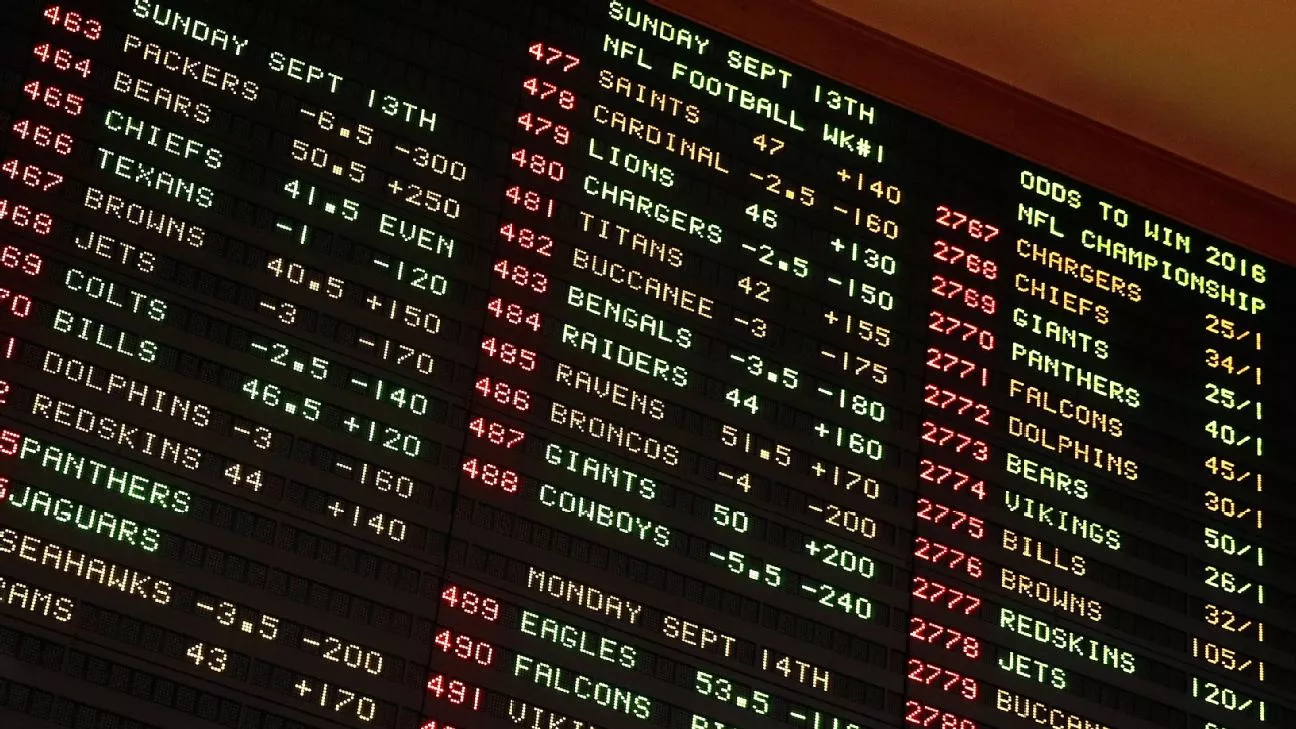
Pro: Simplicity
There is something wonderful about the simplicity of a moneyline wager. Similarly, a pick em is also quite straightforward compared to a point spread wager (a pick em is similar to a point spread bet but the line is so close it is basically even).
All you have to do in a moneyline bet is figure out which team will win and how much you can potentially win from your wager. For instance, betting on a team that is -125 means that you would need to bet $125 to win $100.
Pro: Accessibility
The most beautiful thing about moneyline wagers is how accessible they are. You may find point spread bets for major sports like football, baseball, basketball, and hockey, but they aren’t as accessible in other sports. With a moneyline wager, you can add in things like combat sports, tennis, etc.
Point spreads might be the great odds equalizer, but they can be tough to predict. Taking a moneyline wager is a lot simpler no matter where you go. What you have to bet to win $100 can vary greatly, but they are more widely available at the very least.
Cons: Lower Payouts on Favorites
Look at the moneyline price on your average favorite and you will notice quickly that you are risking a lot with your wager to win relatively little. The heavier the favorite is, the lower your potential payout may be if you want to win $100.
You also probably can’t bet the same amount frequently and expect to make real profits. Even the sharpest bettors get 40% of their picks wrong. Winning at a 60% clip picking favorites will create a modest return but your losses around the same almost every time.
Cons: Lack of Margin for Error
Another problem when it comes to moneyline betting is that there is no room for error. You are picking which team will win the game. It is a 50/50 proposition no matter how you slice it. Sure, one team may have better odds (or in a pick em they’ll be virtually even), but either team has a chance to win.
Moreover, you have to be more accurate. Betting to win $100 on a heavy favorite will likely provide a modest payout. A couple of losses in a row will quickly undo any profits you may have earned. Bonus bets can help you get a leg up but even those can be somewhat limited when it comes to moneyline betting.
So know we know what does money line mean let’s find out some interesting strategies for betting.
Strategies for Moneyline Betting
Though there is no such thing as a sure winner when it comes to making a bet, there are ways that you can give yourself an advantage. Having a strategy for your moneyline bets is a good place to start and could help you land on the winning side of things more often than not.
Analyzing Team and Player Statistics
Whether you are using bonus bets or plan to wager your own money, you should have as much information as possible. This goes for a point spread bet, moneyline wager, and really any other kind of bet. The more information you have, the better position you will be in.
For instance, take a look at recent trends and player stats before making a bet. You may find that the point spread is the better option versus the moneyline odds. Look for trends and you will feel a lot more confident about your wager going into it.
Managing Your Bankroll
Being an effective sports bettor – whether it be moneyline betting or point spreads – is having control over your bankroll. We all endure cold streaks from time to time, whether it be with your first bet or your most recent.
The best way to mitigate those cold streaks is to control what you wager. Bonus bets can be advantageous here but you need to put a cap on how much you wager each time. Generally speaking, bet no more than 1-2% of your total bankroll. This way, you can keep going even in the face of a cold streak. That said, online gambling should be done for fun, so check out the responsible gambling tools at each sportsbook pertaining to having a gambling problem.
Shopping Around for the Best Odds
One of the best things you can do when it comes to moneyline odds is shop around at a variety of sportsbooks. Odds can look slightly different on the exact same game from one book to another and those minor differences can wind up creating real value.
For instance, perhaps you are making a bet on the Super Bowl. While the focus is on who would win the game, you can shop the books to find better odds on the game. Even on massive games like the Super Bowl, you can find slight differences that would win a larger amount of money on the same bet.
Considering External Factors
There is more to a moneyline bet than just the two teams in the game. There are a variety of factors that contribute to the game and even potentially even the playing field for a potential underdog. Determining who would win then becomes a bit tougher when those factors are introduced.
For instance, you may plan to wager on the favorite but have you analyzed where the game will be held and what the weather will be like? What about past performance of each team at the site where the game is being held? In order to make a moneyline bet work, you need to look at all factors coming into a particular game.
Moneyline Betting Across Different Sports
What do moneyline bets look like across different sports? Compared to point spread bets, placing bets on the moneyline often looks quite simplistic. The potential payout varies depending on which team you choose, the moneyline odds, and the sport itself.
Moneyline Betting in Football
Moneyline bets on the NFL are among the most popular in the sports betting world. You need to bet on which team will win the game. The minus sign indicates the favorite while the plus sign (in American odds) indicates the underdog. Your total payout depends on the amount of money you wager and which team you pick.

Moneyline Betting in Basketball
Moneyline odds in basketball tend to be some of the most skewed. The underdog in your average NBA moneyline bet is typically higher than other sports. Likewise, placing a bet on the favorite means that you will need to bet far more than $100 to win $100.
Check out these ClutchBuzz promo codes to bet on NBA next season.
Moneyline Betting in Baseball
The great thing about moneyline betting is that it is similar across all sports. Your bet wins when you pick the right team to win the game. Like any other sport, the potential payout depends on the moneyline odds for that particular game.

Moneyline Betting in Combat Sports
Moneyline betting in combat sports like boxing and MMA are oftentimes quite the same as your average wager. Your moneyline bet wins if you choose which fighter wins. You can place wagers on things like the type of finish but think about an MMA moneyline wager as being similar to choosing which team wins.

Moneyline Betting in Soccer
Moneyline betting in soccer is there but works differently. For instance, the best odds are typically on a draw rather than one team winning. There also isn’t typically a point spread in soccer, though each sportsbook is different. The underdog in a soccer moneyline is often a major underdog as well.

Common Mistakes to Avoid with Moneyline Betting
Even the most experienced and well-meaning bettors make simple mistakes in sports betting. Whether you are looking at moneyline odds or another type of wager, it is important to go in with a clear head and avoid these simple sports betting problems.
Betting Based on Emotion
Perhaps the worst thing a bettor could do in moneyline betting is to base any particular bet out of emotion. Not liking a team like the Kansas City Chiefs is fine but betting against them can wind up being costly. Go over your betting options and look for the most straightforward bet possible.
Ignoring In-Depth Analysis
There are plenty of ways to use the betting odds in your favor. Some sports bettors, known as sharp bettors, have an edge over the rest of the sports betting community. Whether it be point spread betting, a moneyline bet, prop bets, or parlay bet, following sharp bettors can wind up winning you more money.
Overcommitting to Heavy Favorites
To an outsider, sports betting might seem simple. Just choose the favorite, right? Why go with the underdog if you can take the “sure thing?” Well, there is no sure bet to win the game. Upsets happen all the time and losing on the favorite in a moneyline bet is all too common. Do your homework and don’t just assume you’ll win betting on the favorite versus the underdog.
Neglecting to Shop for the Best Lines
A common mistake when it comes to making moneyline bets is not shopping the line. For something like the NFL moneyline, there is value to be had by shopping from sportsbook to sportsbook. For instance, DraftKings Sportsbook may have +100 odds on one game while another book has +110 odds. That value adds up in the end, so don’t just choose the first set of odds you come across.
Conclusion
Check any bet slip out there and there is a good chance that you will find a moneyline wager. Moneyline bets are among the most common bet types to be found at any sportsbook. It also happens to be the simplest bet type to go with.
Finding the right chance to pick an underdog can provide higher potential winnings than choosing the favored team. Your potential payout depends on how high the number next to the plus sign is. Make the right pick and your total payout can be more money than taking the favored team.
Frequently Asked Questions (FAQs)
What does a positive moneyline indicate?
When looking at moneyline odds, you will see a positive number and a negative number. The positive number indicates the underdog in that game. When you bet on the underdog team, the plus sign and the corresponding number provide the implied probability that the team will win the game.
How do I place a moneyline bet?
Placing a moneyline bet is as simple as it gets. In order to place a moneyline bet, you need to bet on which team will be the outright winner. Moneyline odds can be found most typically on a football game, basketball game, hockey game, etc. There are some exceptions where you would bet on an individual rather than which team wins.
Can I use moneyline betting on any sport?
The great thing about such bets is that you can place one on virtually any sport that has two teams. You bet on the team to win the game outright. There are sporting events that don’t qualify for moneyline bets. Racing and golf are two prime examples because people bet on an individual to win rather than a team to win.
What happens if a moneyline bet results in a tie?
Depending on the sport (and the sportsbook), it is possible that your moneyline bet ends in a tie game. What happens next depends on the different sportsbooks. One sportsbook may call it a push and give back your original wager amount. At multiple sportsbooks, however, a tie game results in a lost wager. Read the fine print before you start making moneyline wagers.
How are moneyline odds different from point spreads?
Moneyline odds are different from point spread betting in one significant way. For such bet, you bet on one team to be the outright winner. Additionally, the odds can be a high negative number, meaning you must bet a lot to make a real profit. A point spread bet is more often than not even odds, essentially 50/50. You get a higher payout on your original wager than you would for a winning bet on the moneyline.
